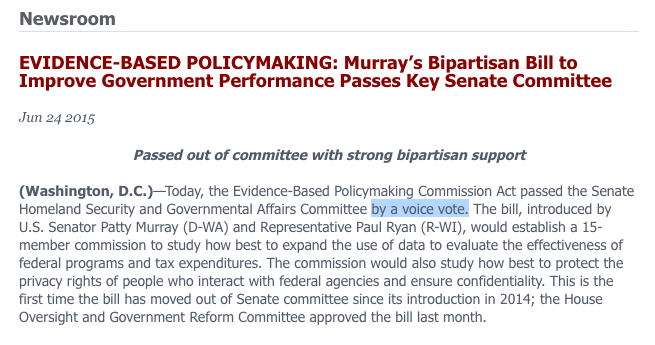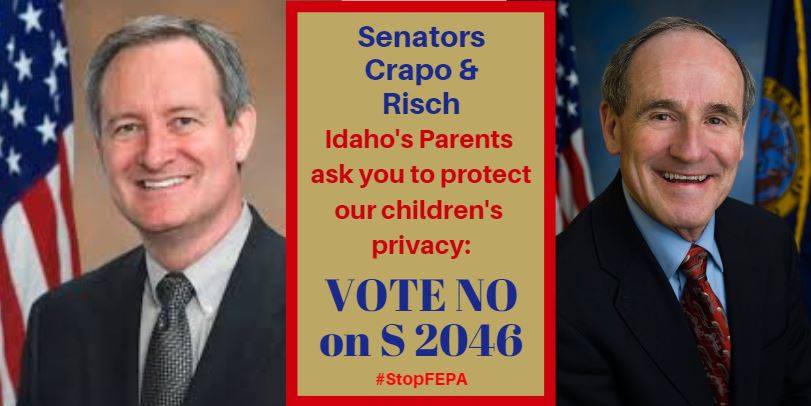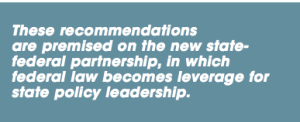Congress is responsible for creating necessary and proper laws within their authoritative boundaries of constitutional powers. But the current process by which a bill becomes a law desecrates the Founder’s ideals. The “institutional defenses” built into the constitution have been eroded by the malicious use of deception and disregard for ethical principles.
“The most significant danger old republics like ours face is not the sudden assault of an aspiring autocrat but the slow erosion of their cultural and institutional defenses.” The Fall of Rome and the Lessons for America
Here’s How A Recent Data Bill Went Through Congress
“Laws begin as ideas” so they can come from any of us, ideally. But in today’s reality, it’s more likely a special interest group will solicit one of our representatives to move their proposal into law. Enter (in this case) the technology industry — through the Data Summit and the Data Quality Campaign that was launched in 2005.
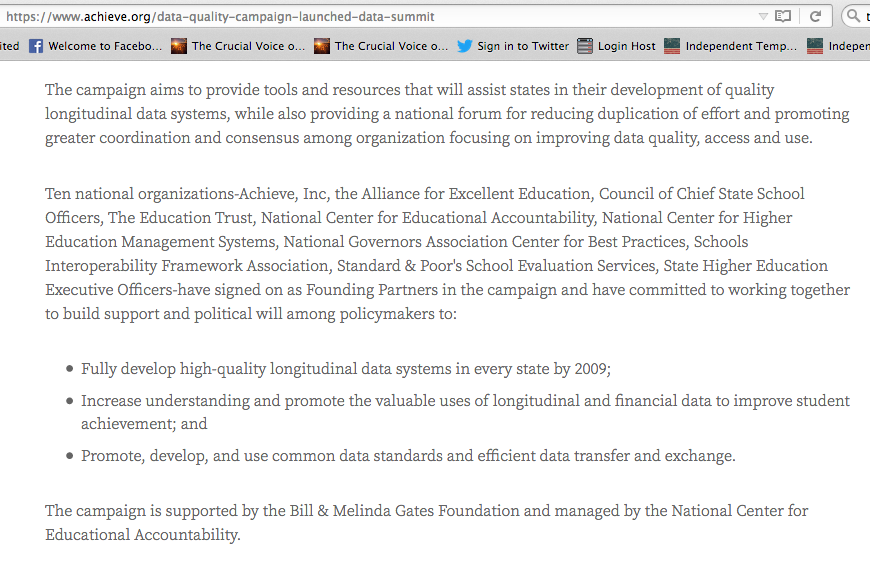 By 2008, Idaho was the last state in the nation to have a longitudinal data collection system “that provides individual level student data across multiple years from grades K through 12 and into postsecondary education.” (Report to the Idaho Legislature)
By 2008, Idaho was the last state in the nation to have a longitudinal data collection system “that provides individual level student data across multiple years from grades K through 12 and into postsecondary education.” (Report to the Idaho Legislature)
With the Great Recession holding the country’s attention, both the Bush and Obama administrations loosened a major privacy law allowing expansion of data collection and its use in “research” on a Human Capital Development Data System.
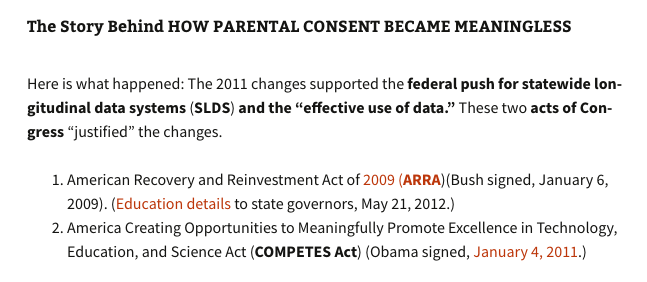
FERPA: Family Educational Rights & Privacy Act
Acceptance of federal stimulus funding from the American Recovery and Reinvestment Act (ARRA, Recovery Act) served as an incentive for completion of the project to collect, share, and link student data between agencies and across states.
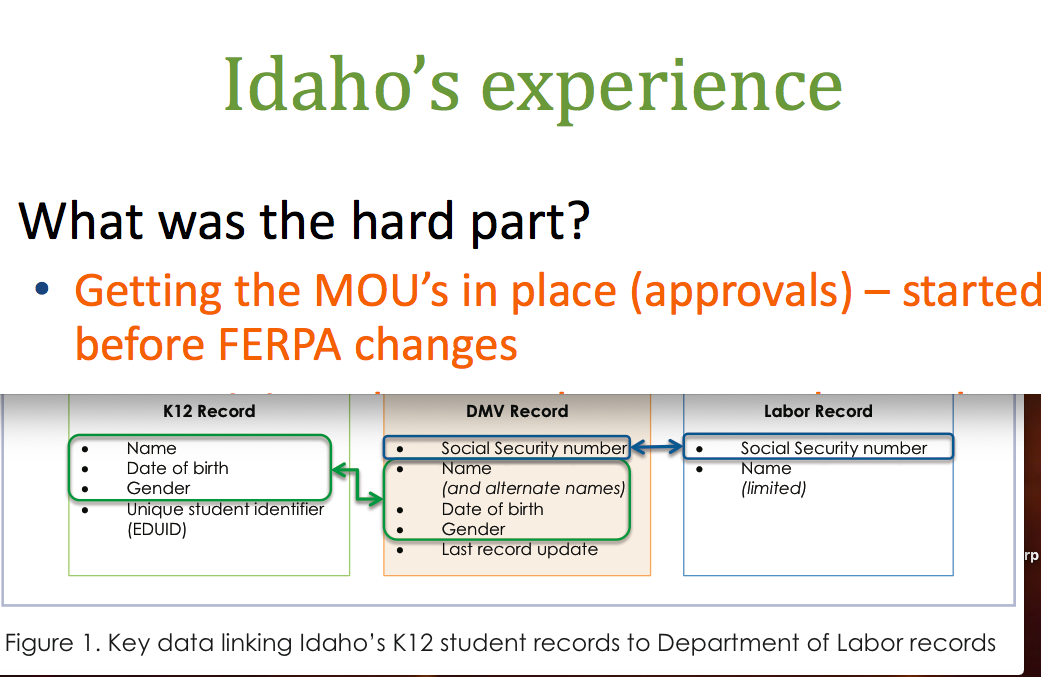
FERPA has yet to be changed back to requiring parental notification and consent to share student data.
One strategy used to put these data collection systems in place was to NOT have open discussions or public debates.

State Longitudinal Data Systems Best Practices included “EFFECTIVE” Communications. In this case that means NOT allowing “open forums.” It means communicating the right message.
The “do not engage” practice moved the project along at the state level. Next up was federal legislation, which requires the kind of broad support that only money can buy these days.
The messaging needed to be just right. The “best practice” of not exposing an idea to too many people, or too much scrutiny, was taken to the next level — to both houses of congress with both political parties involved. The adoption of a federal data consolidation bill began by asking for a commission to study the idea. It was approved by a Voice Vote.
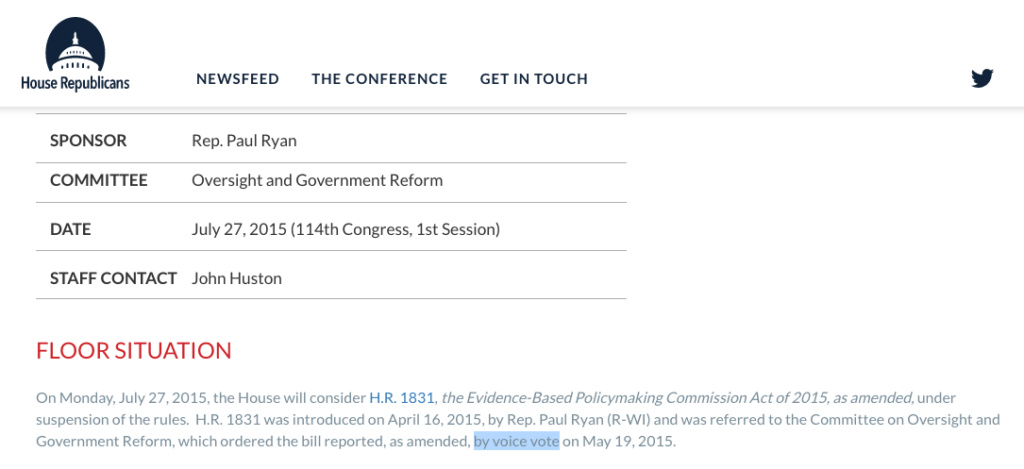 They were only asking for a study to be done. … No big deal.
They were only asking for a study to be done. … No big deal.
A Voice Vote means there is no record of individual votes.
Three Months Later, The Report Was Released
It didn’t take long for the Foundations for Evidence-Based Policymaking bill to emerge.
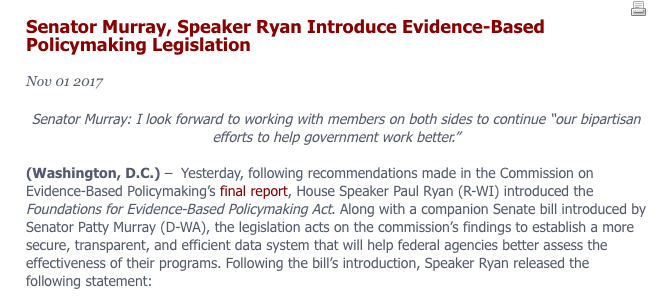 Note: Senator Patty Murray mentioned “federal agencies” — plural. This is no small deal. This is huge!
Note: Senator Patty Murray mentioned “federal agencies” — plural. This is no small deal. This is huge!
The response?
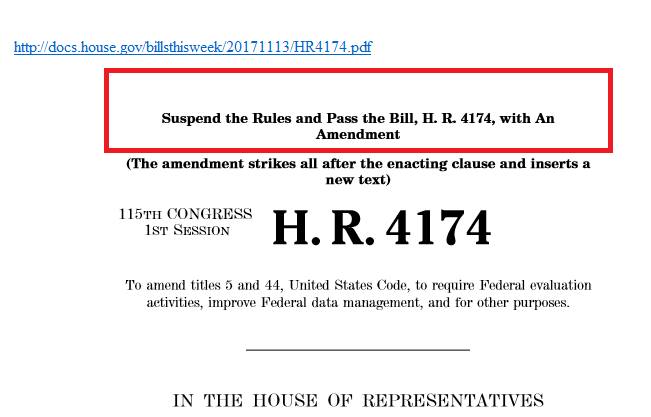 The U.S. House of Representatives passed the bill under suspension of rules —by Voice Vote!
The U.S. House of Representatives passed the bill under suspension of rules —by Voice Vote!
That was on November 15, 2017 —2017 pre-holidays —and Twitter lit-up in protest.
Throughout the holiday season education activists watched for movement of the bill in the Senate. Pre-Christmas had become a favored time for education bills to quickly become law. This time nothing happened. Had it died in committee? NOPE!
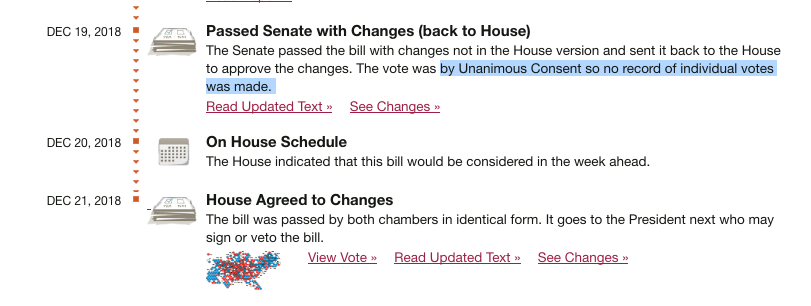 DECEMBER 19, 2018….2018.…real close to Christmas….and it passed by Unanimous Consent — the Senate’s version of a Voice Vote (no roll call, no individual record).
DECEMBER 19, 2018….2018.…real close to Christmas….and it passed by Unanimous Consent — the Senate’s version of a Voice Vote (no roll call, no individual record).
December 20, 2018 —Back to the House.
 DECEMBER 21 —the Friday before Christmas with a Lame Duck Congress at 4:14 PM—the House did a roll call vote TO SUSPEND THE RULES. The bill known as HR4174 (FEPA – Foundations for Evidence-Based Policymaking) officially passed both houses of congress. But the story doesn’t end. Congress recessed.
DECEMBER 21 —the Friday before Christmas with a Lame Duck Congress at 4:14 PM—the House did a roll call vote TO SUSPEND THE RULES. The bill known as HR4174 (FEPA – Foundations for Evidence-Based Policymaking) officially passed both houses of congress. But the story doesn’t end. Congress recessed.
The bill did not go immediately to the president’s desk. If it had and he did not sign it within 10 days, this bill would have been killed by what is called a “pocket veto.” But if Congress is in session and the president does not sign the bill within 10 (working?) days, it becomes law.
JANUARY 2, 2019 —FEPA HR4174 (sister to Washington Sen. Murray’s S.2046) went to the president’s desk.
Today is January 14th. My senators are not answering their phones at 4:14 PM. Nor is the Senate Homeland Security & Governmental Affairs Committee (the one that slipped this bill out of committee a year after activist had eyes on it).
Is this acceptable?
We might expect some bad behavior from the liars in the House, but Senators should act with more integrity.
So, WHAT’S In The BILL? Better question: What is not in the bill?
The public is being told that the recommendations made by the FEPA Commission were followed. They were not. Data privacy recommendations were ignored.
“The Commission’s recommendations for improved data access and strong privacy protections rely heavily on the establishment of the National Secure Data Service [NSDS]. … The Commission envisions that the National Secure Data Service will operate an effective and efficient service that can be held accountable by policymakers and the American public.” The Promise of Evidence-Based Policymaking
Here is what the public should have heard debated.
“Even where data has been de-identified it is still possible to combine certain data sets with others to determine extensive amounts of personal information.”
“…there are real challenges to ensure that the creation of the NSDS does not create a centralized repository of data on Americans, like the proposed National Data Center which was broadly opposed by the public and led to the enactment of the Privacy Act.” Electronic Privacy Information Center
It is a sad day for the republic.
When it comes to Open Government, the Sunlight Foundation asked this about a Trump White House.
“Congress is the ultimate watchdog. Will Congress provide aggressive oversight?”
If Congress is the ultimate watchdog, the republic is in deep trouble.

